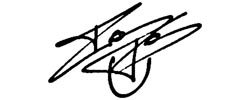|
|
|
|||||
|
MISNOMERS HURT DRAG RACINGI was reading the Atlanta Journal-Constitution's online edition recently and a small headline tucked away on the left side of the screen caught my eye: Drag Racer Charged With Mom's Death. Naturally, I had to check this out. Was it a famous racer? Was it anyone I might know? Was it a little-known Sportsman from some backwoods dragway? Or was it a case of the mainstream media simply getting it wrong again? As I suspected, the final scenario was true. Associated Press issued a news report Mar. 6, about the case of "drag racer" Dwight Samples, a 21-year-old facing up to 30 years in prison if convicted on two counts of vehicular manslaughter. On Dec. 19, 2001, while allegedly street racing on a two-lane road near Tavares, FL, Samples slammed his Ford Mustang into the rear of a slow-moving car driven by his own mother, Diane Samples, who died at the scene, along with her 72-year-old friend Vivian Green. There's no doubt this is a tragic story. But it's a tragic story about an illegal street racer, not a drag racer. What's the difference, you might ask. What difference does it make what we call Dwight Samples? He killed two people with his car and we all know what the story means, so why bother with semantics? The thing is, words do matter, especially in the supposedly precise world of hard news. Words carry meaning and convey images, and can be used to sway public opinion and sentiment. Now, I'm not saying AP or any other news outlet is deliberately trying to tarnish the image and reputation of drag racers by misrepresenting street racing incidents. In fact, I think it happens most of the time simply because the offending writer or editor just doesn't know better. But that's not an excuse. In my opinion, it's their job to understand the context and meaning of every word and phrase they commit to print, and when they don't, they should be called on it. If you told a stranger that you're a drag racer or a drag racing fan and they immediately equated you with the likes of Dwight Samples my guess is that you'd correct the impression by explaining that drag racing is not what Dwight Samples was up to. You probably would point out the reckless nature of going side-by-side with another street car at more than a hundred miles an hour on an isolated stretch of pavement with driveways and intersections and curves and hills all along it; compared to racing against a known competitor in a well-prepped racecar on a closed-access, purpose-built dragstrip, with rescue workers and medical personnel waiting nearby should the need arise. You'd likely also mention that drag racing is a legitimate motorsport, done in a controlled environment and adhering to a fairly strict and certainly well-defined set of safety rules, while street racing, as Samples was doing, is a lawless, dangerous (and here's the key word) "illegal" pursuit. When AP and other media outlets don't make these distinctions, they paint "legal" drag racing and drag racers as parts of the fringe element that treat our highways as racetracks. It may well be that some legitimate drag racers do periodically contribute to the street racing problem (I'll admit I've been guilty in the past, though it was a long time ago), but when that happens they no longer are drag racing. They are illegally street racing, and if caught, the news outlets should report it that way. Not to do so can lead to real-life ramifications for legitimate drag racing. For instance, if neighbors and politicians perceive drag racers as unsavory elements in their communities, adverse pressure can be exerted when it comes time to renew track leases or to approve noise restriction exemptions. Public opinion is a very strong force (just ask Gary Condit), and if reporters are left to label all street racers as drag racers, the negative image can be tough to overcome. On the other hand, public backlash from legitimate drag racers may help educate at least some mainstream media types to reconsider before calling the next street racer in the news a "drag racer." I was very pleased to see NHRA speak out last year to differentiate itself and its participants from the activities portrayed in the street racing flick, "The Fast and the Furious." The movie may have provided an entertaining ride (I didn't see it), but it was obvious from the advertisements that it wasn't about drag racing. It's vitally important to the sport to continue making that distinction
between legitimate drag racing and illegal street racing. So, if you
see a newspaper, TV station, or magazine mislabel drag racing, you might
want to send a letter or e-mail, or even make a phone call to the editor
or station manager to vent your displeasure. It's either that or accept
being lumped together with the Dwight Samples of this world.
|
|
|||||
|
Copyright 1999-2002, Drag Racing Online and Racing Net Source |
||||||




